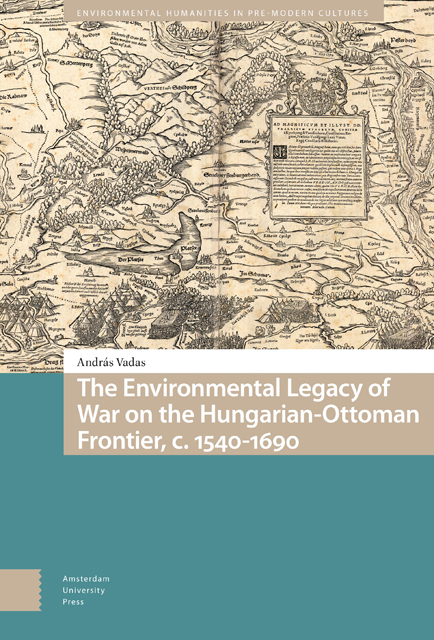Book contents
- Frontmatter
- Dedication
- Contents
- List of Figures
- Note on Names
- Acknowledgments
- 1 Introduction
- 2 From the Center to the Frontier: The Environment of Central Transdanubia in the Early Modern Period
- 3 A Century of Water?: The Rába Valley in the Seventeenth Century
- 4 From Endless Forests to Meadows and Wastelands?: What Happened to the Forests Along the Border?
- 5 Conclusions
- Appendices
- Bibliography
- Index of Geographic Names
- Index of Personal Names
1 - Introduction
Published online by Cambridge University Press: 17 October 2023
- Frontmatter
- Dedication
- Contents
- List of Figures
- Note on Names
- Acknowledgments
- 1 Introduction
- 2 From the Center to the Frontier: The Environment of Central Transdanubia in the Early Modern Period
- 3 A Century of Water?: The Rába Valley in the Seventeenth Century
- 4 From Endless Forests to Meadows and Wastelands?: What Happened to the Forests Along the Border?
- 5 Conclusions
- Appendices
- Bibliography
- Index of Geographic Names
- Index of Personal Names
Summary
Abstract The chapter sketches the main questions of the book and provides its main chronological and geographic frameworks. It focuses on the problem of the interrelation between wars and the environment and addresses the question of the environmental transformation caused by the lasting military conflict between the Kingdom of Hungary ruled by the Habsburgs and the Ottoman Empire in the sixteenth and seventeenth centuries.
Keywords: Environmental history, Kingdom of Hungary, Ottoman Empire, Carpathian Basin, military history
The concept behind this book stems from an article I wrote more than ten years ago. I became interested in the environmental history of the Middle Ages and the early modern period and decided to write a piece on the “great famine” of the 1310s in the Carpathian Basin. While browsing through the sources from that period, I encountered some references to the impact of military campaigns on local economies and landscapes. The problems that military campaigns caused are, of course, neither specific to the 1310s nor the Carpathian Basin, and the environmental effects of periods of war have been studied in various contexts. Oddly enough, one of the best studies written thus far on environmental disturbances of medieval warfare looks at the same period, the early fourteenth century, but does not focus on Central Europe but instead on the British Isles and looks at the intertwined history of the Scottish wars, the Great Famine, and the cattle plague that devastated the island. However, ten years ago when I was working on the fourteenth-century crisis and their military aspects in the Kingdom of Hungary, significantly less literature was available on pre-modern wars and the environment than nowadays. Nevertheless, I tried to access basic literature on the environmental impacts of wars in general. One of the first seemingly relevant articles I found was Joseph Hupy's essay, “The Environmental Footprint of War”. Though Hupy's overview referred to pre-modern wars and their environmental implications, it mostly focused on the possible environmental impacts of warfare after the introduction of the systematic use of smokeless gunpowder and, most importantly, the chemical weapons used in the twentieth century. He identified three types of war-related environmental disturbances:
(1) Environmental disturbance and destruction from weaponry;
(2) Direct consumption of resources: timber, water, and food to suppor armies;
(3) Indirect consumption by military complexes.
- Type
- Chapter
- Information
- Publisher: Amsterdam University PressPrint publication year: 2023



